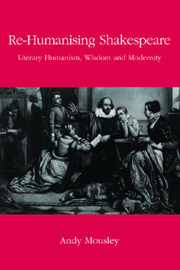Conclusion
Published online by Cambridge University Press: 12 September 2012
Summary
We might live in the way described by Gonzalo in The Tempest (1610–11):
no kind of traffic
Would I admit, no name of magistrate;
Letters should not be known; riches, poverty,
And use of service, none; contract, succession,
Bourn, bound of land, tilth, vineyard, none;
No use of metal, corn, or wine, or oil;
No occupation, all men idle, all;
And women too – but innocent and pure;
No sovereignty.
Gonzalo's utopian vision is interrupted by the sceptics, Sebastian and Antonio, but that does not deter him:
All things in common nature should produce
Without sweat or endeavour. Treason, felony,
Sword, pike, knife, gun, or need of any engine,
Would I not have; but nature should bring forth
Of it own kind all foison, abundance,
To feed my innocent people.
(II, i, 165–70)I, too, feel the need to interrupt Gonzalo, but not just to puncture his idealism. Hope, to continue the previous chapter's theme, prompts engagement with his utopia to the extent of wondering how his vision might have some sort of practical application or embodiment, to recall the term I have been using to describe one of the features of literary humanism. The natural conclusion to the argument of previous chapters is that we might use literary texts, not only – as sceptics – to interrogate their and our own literary, cultural and historical contexts, and the meanings, values and ideologies that people have lived by, but also – as ‘literary humanists’ – to talk about the question of how life might be.
- Type
- Chapter
- Information
- Re-Humanising ShakespeareLiterary Humanism Wisdom and Modernity, pp. 172 - 174Publisher: Edinburgh University PressPrint publication year: 2007



